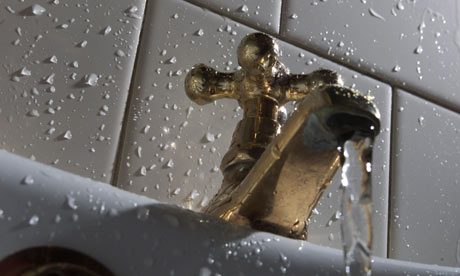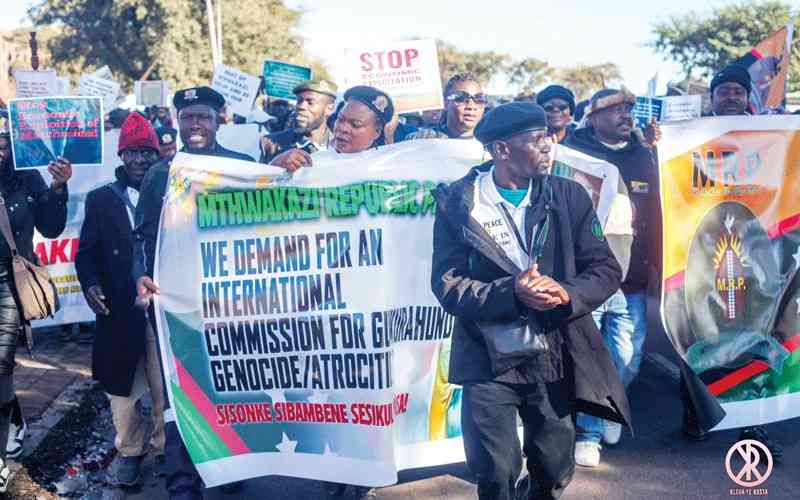
BULAWAYO residents have complained about astronomical water bills they received from the city council this month and accused the local authority of trying to unscrupulously recoup potential revenue lost last year following a ministerial directive to cancel outstanding debts.
MTHANDAZO NYONI OWN CORRESPONDENT
When council effected the debt cancellation, its revenue collection dropped to $2,4 million per month from $6,9 million.
Some residents who spoke to Southern Eye questioned the council’s billing system after receiving huge water bills of over $200 in some instances.
“I received a bill of $250 which is unrealistic for a family of three,” said a Luveve resident.
“My wife and I rarely spend time at home as we would both be at work. How then can our bill be so high?
“We want the city fathers to explain this to us because we can’t just allow them to rob us of our money to meet their revenue projections.”
A Magwegwe North resident Ian Gumede said he was shocked to receive a water bill of $106 for this month.
- Chamisa under fire over US$120K donation
- Mavhunga puts DeMbare into Chibuku quarterfinals
- Pension funds bet on Cabora Bassa oilfields
- Councils defy govt fire tender directive
Keep Reading
“I had an outstanding bill of $28 from December, but this month I received a shocking bill of $106 which is not realistic,” he said.
“I do not understand the bill because I did not use as much water as they purport.
“I have not been watering my garden since it’s raining so what informs this high bill.”
A Magwegwe West woman, who identified herself as MaNdlovu, said she was angry at council for “overcharging us and almost everyone in this suburb is complaining about it”.
Residents called for a transparent billing system.
“The city council should update us on any developments and should desist from working on estimates.
“I have never seen council workers visiting my house to take meter readings so they should explain to me how they arrived at the bill they sent me,” said Dixon Nkabazwe of Gwabalanda.
Bulawayo City Council assistant public relations officer Bongiwe Ngwenya said the affected residents should visit their nearest council offices with their queries.
“We always encourage residents to report their cases to the city council so that we can explain to them,” she said.
“It is easier for council to explain the challenges that people face with their billing on an individual basis.”
Ngwenya said the reasons for a high water bill could be leaks, not paying bills every month and using too much water by exceeding the water rationing limit. In low-density areas, the water rationing limit is 300 litres per day, high-density (300 litres), cottages (200 litres) and residential flats with individual metres (300 litres).
TIPS FROM COUNCIL ON HOW TO AVOID HUGE WATER BILLS:
- Take the meter reading, turn off all taps and do not flush the toilet, wait for 10 minutes and take the meter reading. If the reading has changed, it means that water has passed through the meter and there is a leak.
- Residents are encouraged to fix their leaks as soon as possible to avoid water loss and also avoid accumulating a high water bill. It is also easy to check for above the ground leaks such as dripping taps or leaking toilets. For underground leaks, look for wet patches or green grass.
- The City of Bulawayo fixes leaks which are after the meter such as those on road verges, outside your yard while, leaks inside your property and after the meter must be fixed by the property owner. If one is renting a house, please get the owner of the property to fix the leak as soon as possible.
- Residents are encouraged to ensure their taps are tightly closed during shedding periods. When there is no water coming out of the tap, the air that is trapped within the water pipes now rolls the meter and comes out of your tap. This movement of the figures subsequently affects the amount of water that is billed. There is thus a possibility that one can have a high meter reading for a month because of the air that passed through the system. It is a challenge for the municipality as such to gauge that the meter reading could have been air or water that has passed through the meter.
- Residents are encouraged to report any pipe burst or leak that they may see in their area to minimise the loss of water in the city










